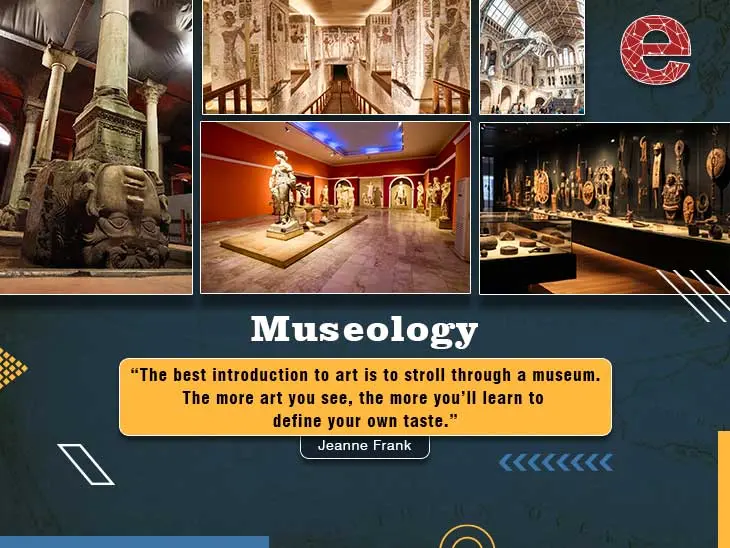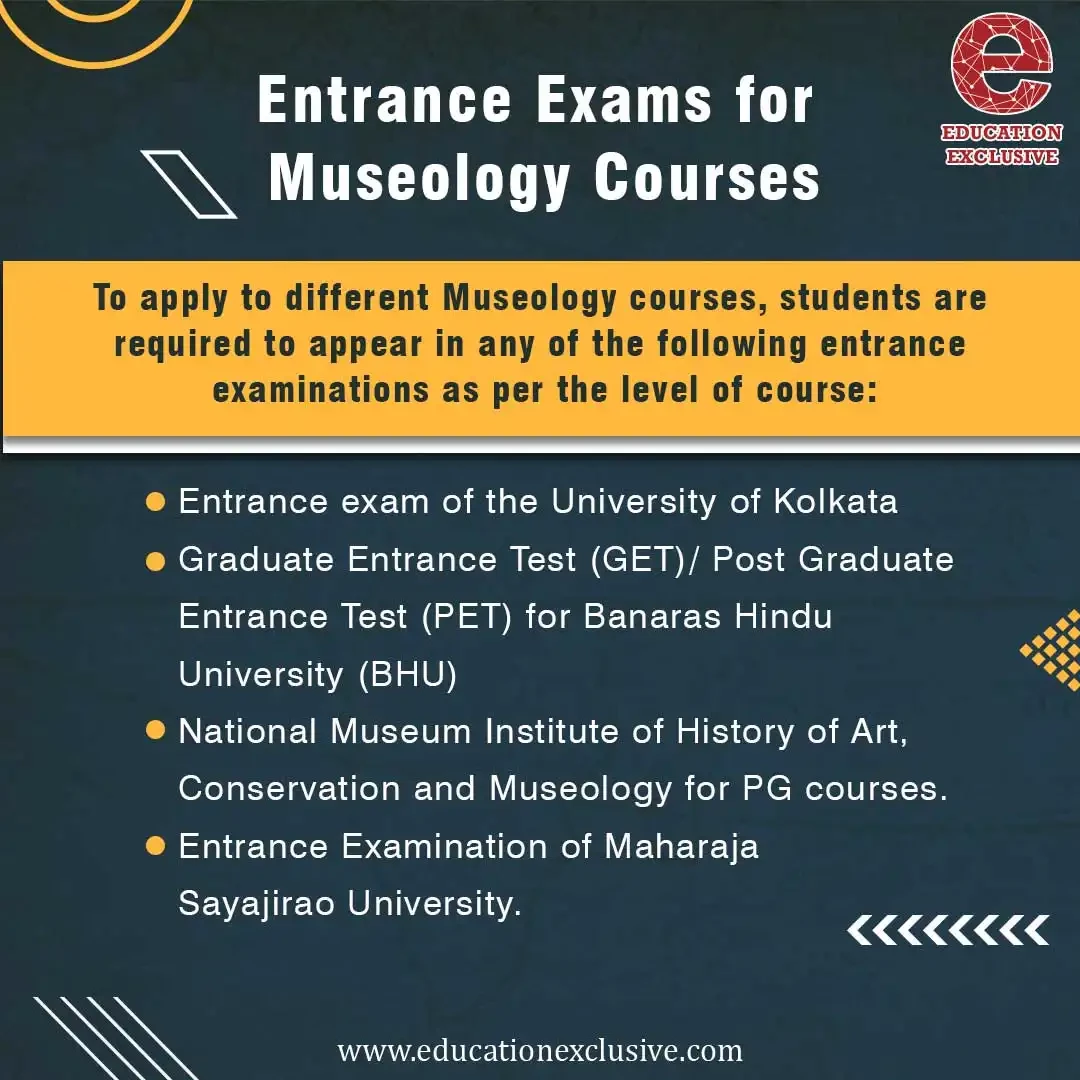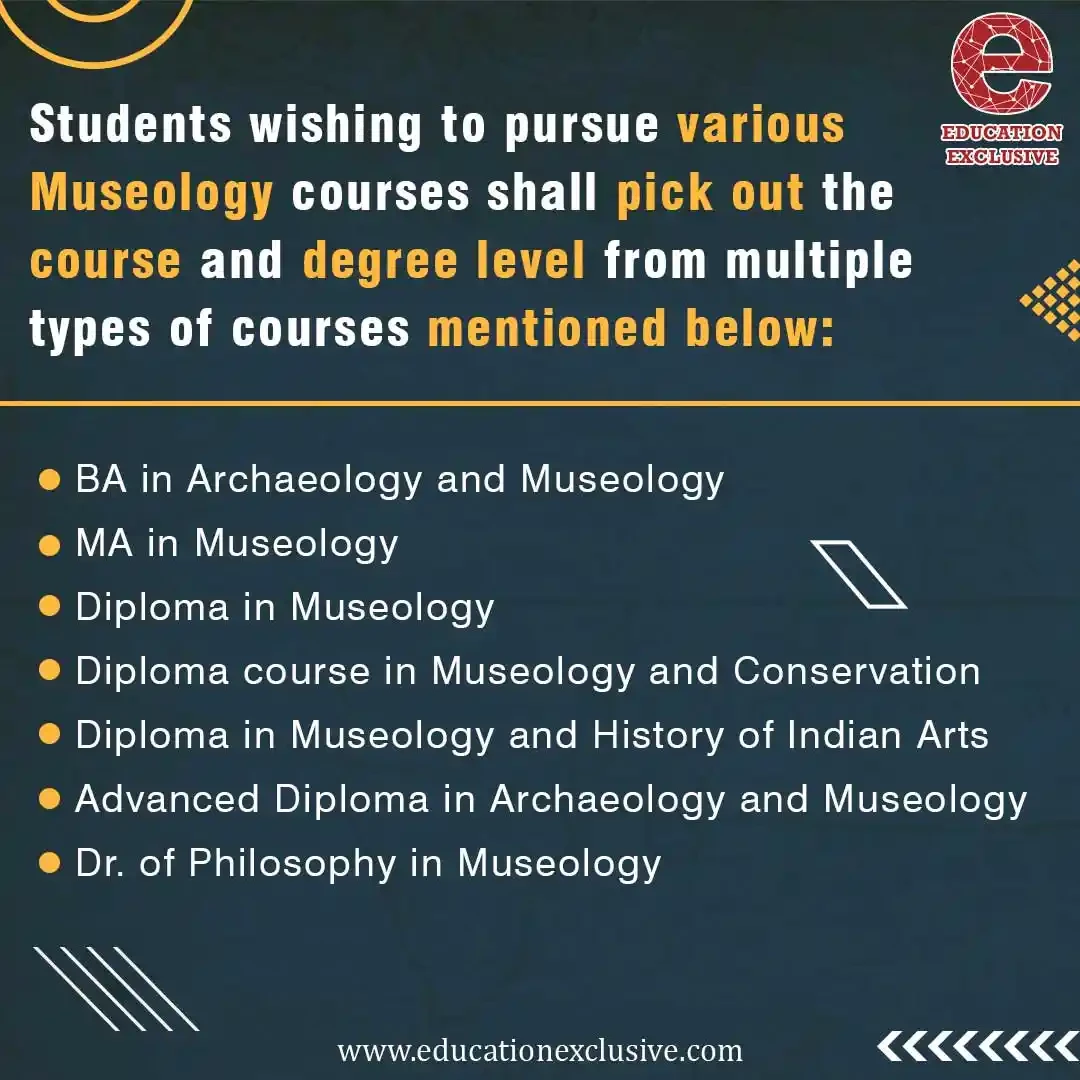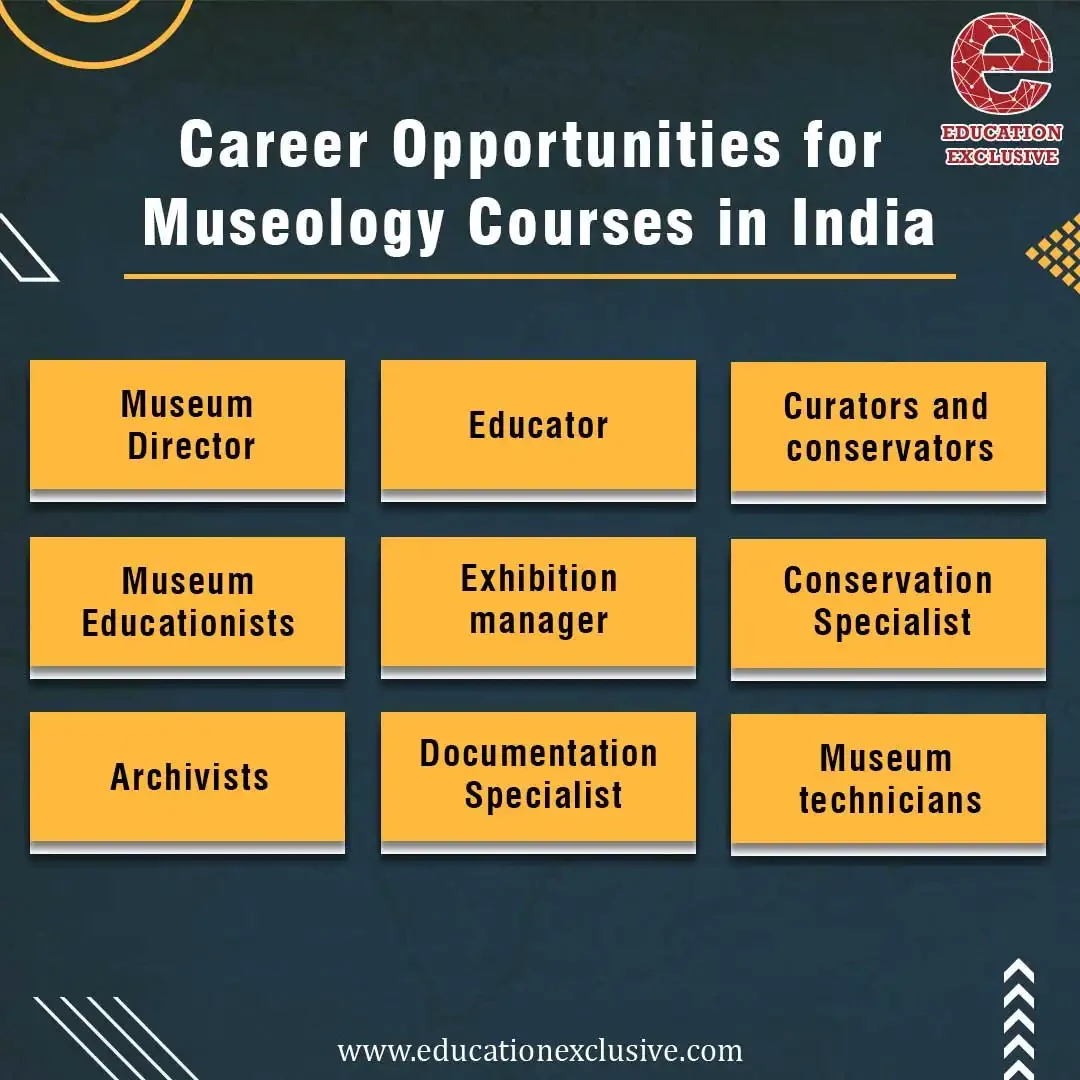Museology Studies A Great Career to Explore
Exclusive Insights

Are you the spirit that goes to the museums to get comfort? What if you could now pursue a new hobby to advance in your professional life? You will learn about museum studies and their advantages for careers in this article.
Do you enjoy walking through various museums, emerging into old-age antiquity, and peeking through the pages of history?
In your heart, do you long to learn more about historical facts and how they can be preserved for future generations?
If the answer to these questions is yes, Museology is for you!
.webp)
How did Museums emerge?
.webp)
Ennigaldi-Nanna's museum, constructed in modern-day Iraq by Princess Ennigaldi during the end of the Neo-Babylonian Empire, is one of the oldest museums known to exist. There were artefacts from previous Mesopotamian civilisations found at the site, which dated to about 530 BC. During the classical era, the museums were temples and the surrounding areas that held collections of offerings made in supplication. There were sculptures and paintings on exhibit in bathhouses, theatres, forums, and parks. Libraries and museums shared a building and were often attached to a temple or royal palace in the past, making distinctions between them difficult. One of the world's first museums is thought to have been the Museum of Alexandria. Although not much is known about the museum, it served as an inspiration for early Renaissance museums. With artwork and artefacts from conquered lands and gifts from ambassadors of other kingdoms, the royal palaces served as a sort of museum where the ruler could show off the accumulated treasures to guests and visiting officials.
What is Museology?
.webp)
As a multidisciplinary subject, museum studies incorporate various aspects of history, archaeology, research, and archiving. Other elements of Museology include infrastructure maintenance, technical inputs required to design a museum and audience engagement mediums. The field also includes the management and administration of museums.
As the early collectors and curious cabinets emerged in Europe in the 16th century, this discipline was developed. Museology is the theoretical study of museum practices, covering its history, development, and management.
Who is a Museologist?
.webp)
A museologist is responsible for managing, organising, displaying, developing, and preserving museum collections and conducting relevant research. Museum curators usually specialise in various disciplines, such as anthropology, art, decorative arts, natural history, social history, science, or technology.
Getting a degree in museology requires a vision of appreciating science, the environment, and the arts. In addition to this vision, the museologist should also have strong analytical skills and an understanding of how important it is to preserve cultural heritage. A museologist should also have an eye for detail and recognise the significance of various artefacts.
Roles and responsibilities of a Museologist:
Roles
- Museum technician
- Exhibition controller
- Researcher
- Lecturer
.webp)
Responsibilities
- Studies museums and museum practices.
- A Museologist is responsible for creating and maintaining the museum’s collection and continuity.
- He or she is also responsible for organising events, exhibitions and other activities.
- Museologists decide on the policies and programs of museums, organise research and educational programs, and oversee them.
How to become a Museologist?
.webp)
To become a Museologist, students shall have specific skill sets, such as:
- Possessing a solid background in and like any of the subjects, such as history, archaeology, art, Indian history and culture, fine arts, and Sanskrit language.
- Students must possess or develop the essential skills of formal writing and communication to collaborate with foreign archaeologists or delegates.
- Museologists also have to learn how to redesign artefacts and date them. Therefore, they must have design aptitude and sketching abilities.
- Other skills required in museum studies include organisational skills, managerial expertise, and financial literacy.

Scope of Museology Courses in India
.webp)
A career in Museology, also known as Museum Studies, is a rewarding experience. From curating to preserving and researching, there are several jobs within the field of Museology.
As a subject of the arts stream, museology isn't well known among Indians, and so it's not thought of as an exciting career path. It is a multidisciplinary subject with lots of scope. In India, there are many opportunities for students of Museology since it contains a wealth of heritage that needs to be preserved.
Many museums offer positions to scholars of museology beyond the state and central governments. In addition to permanent government jobs, most museums give students these positions. Museum Directors, Curators, Archivists, Conservation Specialists, Exhibit Designers, and Professional Persons can all be included in the roles. Museologists are in high demand in India and worldwide.
To encapsulate this idea about museology, let us read this beautiful poem on ‘Museum’ by Glyn Maxwell
Museum
Sundays, like a stanza break
Or shower’s end of all applause,
For some old unexplaining sake
The optimistic tread these shores,
As lonely as the dead awake
Or God among the dinosaurs
Glyn Maxwell
- Career in Museology
- Museology Studies
- Museum Studies
- Scope of Museology
- Museology Courses
- Museum Courses
- Museology Career
- Museology Course in India

.webp)


